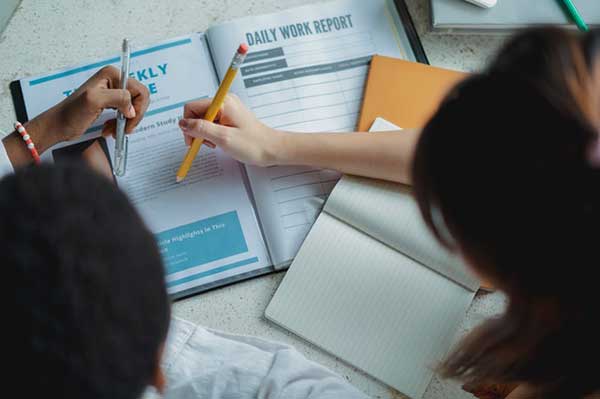How to Retain More of What you Read

If you have ever been frustrated about having read a book, and then realized you haven’t retained much of what you’ve just read, you’re not alone. Many readers have experienced the exact same feelings of frustration at having not retained most of what they have just read, and that can make the experience feel like wasted time. Even worse, you might feel there is something wrong with your ability to absorb information and to make use of it.
When you can be successful at internalizing and remembering some of the insights provided by books you have read, it feels like an update to the software in your brain. Remembering is the first step to truly learning lessons from the material you have read. Whether you are reading for pleasure or to learn about something new, there are strategies you can adopt which will help you learn to retain more of what you read. Use these tips and make every time you read time well spent.
Be selective about what you read

One of the things you should keep in mind about retaining information is that not every book is worth reading. Those books which contain worthwhile ideas that should be remembered are the ones you should focus on, and you should probably skip all those which do not meet these criteria. It will not take you long to figure out whether a book is worthwhile or not, after you have skimmed the table of contents, and perhaps flipped through the book to get a feel for its contents. Probably in about 10 minutes, you will know whether or not this is a book that’s worthy of your time, or whether it’s one that you should pass on.
Do not be ashamed to quit reading a book because you don’t feel there’s much to be gained from it. Keep in mind that life is too short to waste time reading average books or books which are even lower in quality and content, especially given the fact that there are so many amazing volumes worthy of your attention. All this can be summarized by the following: start reading a great many books and quit most of them. Continue reading only those which are worthy of your time.
Immediately use ideas from books

One of the best ways of improving your reading retention and comprehension is to select books which contain ideas you can put into practice. This is a great way to reinforce those ideas in your mind. Practice is one of the most effective forms of learning. When you are expecting to put these ideas into practice, you will have much greater motivation to pay attention to what you are reading and to remember the material.
For instance, if you are starting up your own business and you are reading a book about that very subject, you will have great incentive to remember everything you read, so you can put it into practice. Obviously, not every book will lend itself to this kind of immediate application to real life, but you will probably be more successful at remembering the key ideas of a book when you can apply it to your own life soon after having read it.
Take notes on the material
It can be amazingly effective to take notes on some of the key ideas presented in any book you happen to be reading. It does not really matter how you record your notes, and in fact it should be something that’s very easy to do, so you won’t have to go through any complicated process while you’re actually reading.
It would be best however, if you can store your notes in a searchable format, so they are easily retrievable in the future. If you have a software application such as Evernote, you will be able to search through your notes instantly across multiple devices, and you’ll be able to create new notes even when you’re not connected to the Internet.
Write a brief summary
Get into the practice of writing a brief summary as soon as you’ve finished a book. You can even challenge yourself to try and encapsulate the entire content of the book in something like three to five sentences. This exercise can be extremely effective, because it forces you to consider the most important ideas presented during the text. In order to create this summary, you’ll have to consider the main ideas presented, and try to come up with a description you could use if talking about the book with a friend.
One technique you can use is to simply write the name of the book at the top of a blank sheet of paper, and then write down exactly how you would explain this book to someone who has never heard of it. If you find yourself having difficulty doing this, you may have to review your notes, or go back and re-read certain sections to flesh out your understanding of the material. Many experts agree that the best way to figure out what you have learned from reading any book is to force yourself to write something about what you’ve just read.
Read multiple books about the same topic
For a topic that you are really interested in, you should always read several books which treat that same subject. It is never a good idea to base your entire belief system on the content you read from a single book, given the fact that the ideas presented in that single book will be from the perspective of just one person. You are always much safer to consider several different perspectives, so that you do not run the risk of buying into the belief system of just one person. It is best to attack any topic from several different angles in order to have a well-rounded view of that topic. You will have a more accurate and more complete understanding of any given subject, when you have read several books which intelligently discuss the topic.
Read the book twice

The truth is that any book which is really worth reading is worth reading twice, and in fact it’s probably worth reading over and over again. Any great book will contain so many worthwhile ideas, that you will probably discover new things with each reading, many of which you overlooked the first time through. You will also probably find that there are a number of passages which take on different meanings for you since the last time you read the book, and these new passages will jump out at you because of things you’ve experienced since then.
You might read the same book twice, or even more frequently, but you will never read it the same way twice. You will undoubtedly find new ideas and new material which perhaps did not resonate with you as strongly the first time you read it, and which now have become central ideas for you. The mere fact of repetition will work to keep worthwhile ideas implanted in your brain, and you will certainly retain many more of these ideas with multiple readings.
It has been demonstrated scientifically that learning something only once generally does not cause it to sink in, even if it might momentarily inspire you or impress you. The ideas and the material you have read quickly get overrun by new experiences and other life conditioning. When you return to a great book and read it multiple times, you will undoubtedly retain more of the worthwhile ideas presented in it, and you will learn a great deal more from it.
[/um_loggedin] [um_loggedout]







